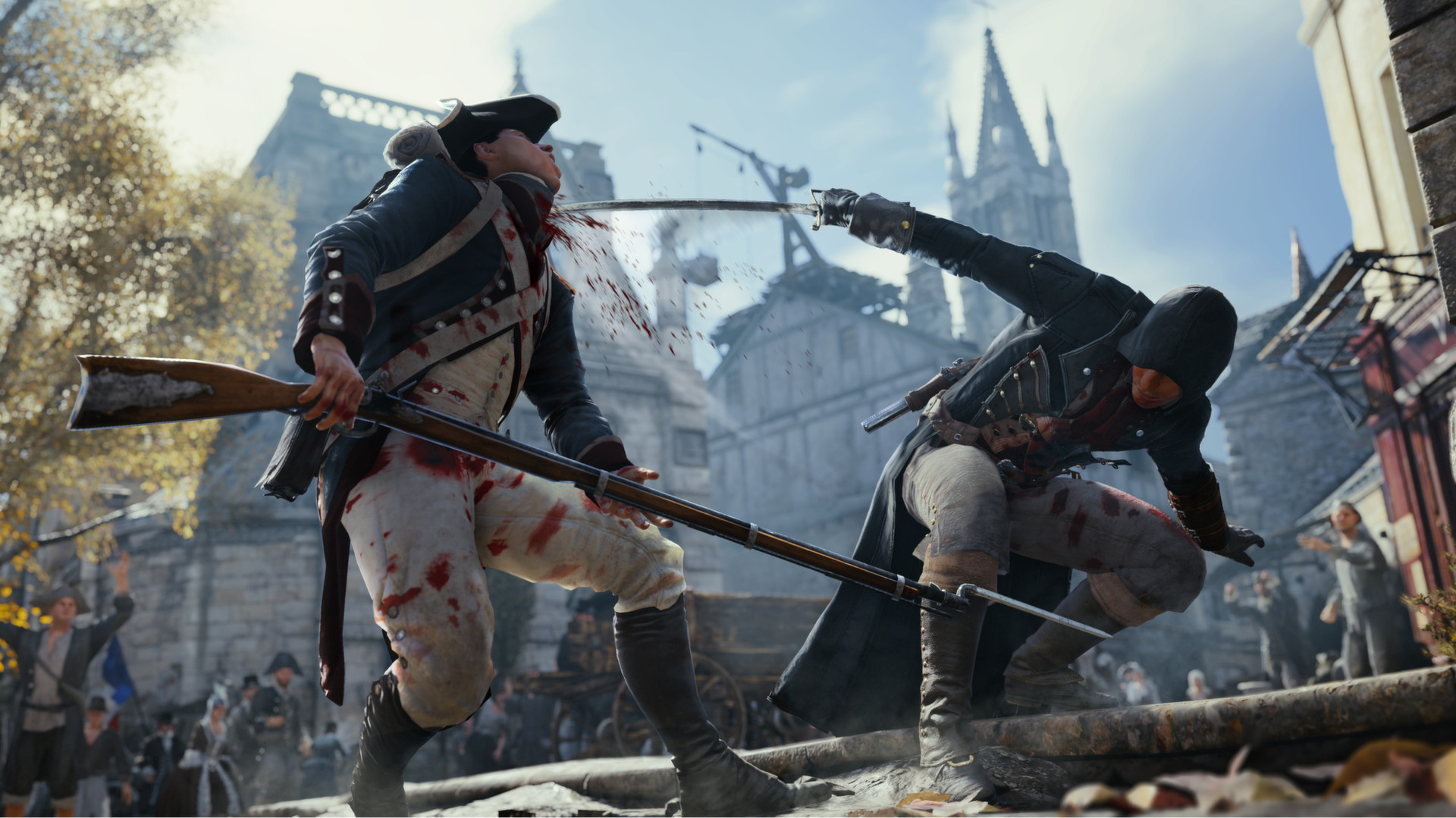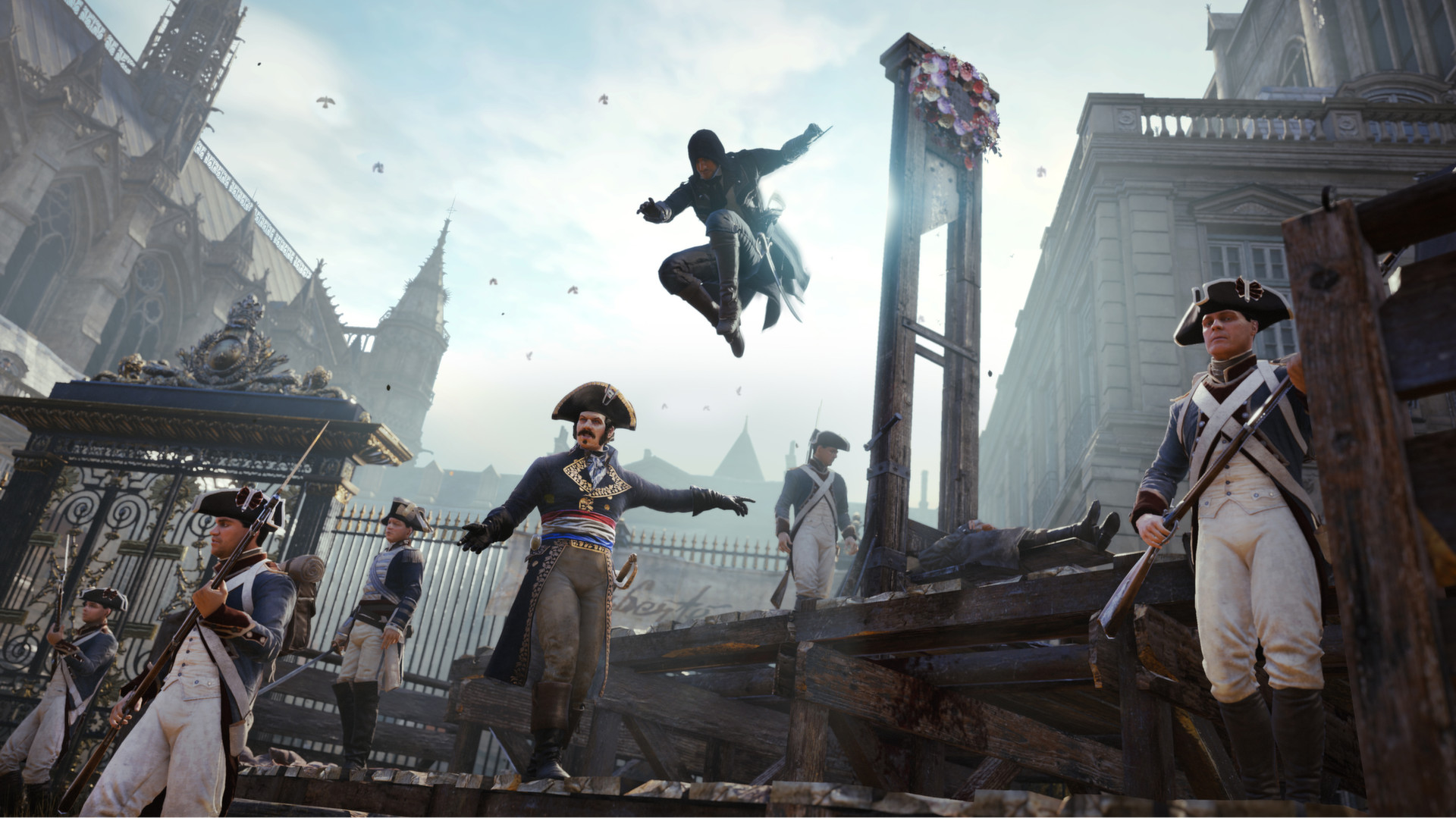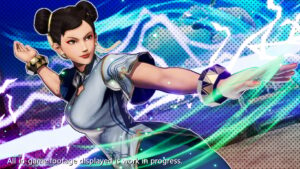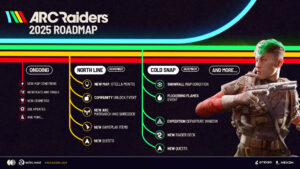
The Assassin’s Creed franchise has been through its fair share of ups and downs, but where the latter are concerned, no game in the series stands out in memory as a low point as starkly as 2014’s Assassin’s Creed Unity. Though the series had already technically made its debut on the then-new consoles PS4 and Xbox One with Assassin’s Creed 4: Black Flag the year prior, that had been a cross-gen release, which meant Unity was going to be the first time that the series would properly leverage the capabilities of the more powerful new consoles.
When Assassin’s Creed Unity actually came out, however, things couldn’t have gone worse. Expectations were high, but the game was instantly on the receiving end of widespread backlash from reviewers and audiences alike, with the lion’s share of the criticism being reserved for the awful technical state it had launched in (while the fact that the series’ formula was beginning to wear thin for many at the time didn’t do the game’s reception any favours either). Of course, those who remember the game’s launch will tell you that the criticism that it received was definitely warranted- but a decade on from that point, have things changed? Looking back, does Assassin’s Creed Unity deserve a re-examination?
Before we get down to figuring out the answer to that question and inevitably giving the game its flowers where they are due (which is a number of areas), it’s important to acknowledge just how bad Unity’s launch actually was, and how pronounced the negative reception to it was back in the immediate aftermath of its release. Often, it’s wise to temper your memories by reminding yourself that the brain has a funny way of making things seem worse or better than they were, but with Assassin’s Creed Unity, in the initial days, things really were quite bad.
Though the game’s technical ambitions couldn’t be doubted in the slightest, it also ended up buckling under those ambitions. Upon release, it was ridden with bugs, not only the more minor kind that are usually rather easy to ignore, but also ones that were much more significant, from characters disappearing entirely during cutscenes to horrible performance issues to frequent crashes and much more. Sure, maybe it never got as bad as things did with something like Cyberpunk 2077 (it’s not like Assassin’s Creed Unity was ever delisted because of its technical issues), but there’s a reason that it’s remembered as one of the biggest and most prominent botched gaming releases in recent memory.
And technical issues were only half the issue, if you would believe it. Assassin’s Creed Unity came out at a time where patience with the series’ old formula was wearing thin. Starting with Assassin’s Creed 2 in 2009, Ubisoft had put out a new game in the series every single year, and by the time Unity released in 2015, the tried-and-true formula that the series had stuck to with little to no meaningful changes was hemorrhaging fans. That, combined with the game’s own technical deficiencies, meant that many simply didn’t have the patience of the inclination to dig hard enough through those problems to be able to enjoy the game as much as they would have.
Fast forward to now, a decade later, and the situation has certainly changed. First and foremost, going back to Assassin’s Creed Unity now, regardless of which platform you’re doing it on, is an excellent experience. That’s been true for quite a while now, actually- it’s been years since the game was patched up to a level of quality that it could only have dreamed of in 2014, and played today, Assassin’s Creed Unity is a genuinely technically impressive experience in more ways than one, with gorgeous visuals, impressive attention to detail, excellent performance, and more.
Just as important is the fact that the fatigue that surrounded pretty much anything and everything to do with the Assassin’s Creed franchise back in 2014 no longer seems to be a factor- or, at the very least, not in the way it used to be. The Assassin’s Creed formula that we were all so sick of back then has been a relic of the past for years at this point. Thanks in large part to the backlash against Unity, Ubisoft radically reinvented the franchise as a massive open world action RPG with 2017’s Assassin’s Creed Origins, which means the last time we got a traditional mainline Assassin’s Creed game was Syndicate in 2015. Sure, we got Mirage last year, which was very much a back-to-the-basics experience, but it was decidedly not flagship or mainline by any stretch of the imagination.
And why is that important? Well, given the fact that there’s no fatigue out there for the old Assassin’s Creed formula but instead, on the contrary, actual hunger for it, going back to Unity today, in 2024, may very well allow you to see its strengths the way circumstances ensured they never could be seen back when the game first came out. In more ways than one, Assassin’s Creed Unity is a legitimately impressive game, and now that it isn’t being dragged down by a litany of technical issues and general fatigue surrounding its core gameplay structure, the game’s biggest strengths are able to shine that much brighter.
And it does have some pretty prominent strengths. Take, for instance, its parkour, which was the best it has ever been in an Assassin’s Creed game even now, perhaps with the exception of Syndicate. Moving through its dense and elaborately designed Paris was an absolute joy, because every single movement in Unity was so perfectly tuned. From the variety of movement options to the way the entire city and its many parkour challenges were designed around those options, to how the incredible suite of animations brought all of that to light, parkour and movement in Assassin’s Creed Unity were an absolute dream.
Also worthy of high praise was how the game handled stealth. No, Assassin’s Creed has never been (and probably never will be) on the same level as stealth masterpieces like Metal Gear, Hitman, Splinter Cell, or what have you, but with Unity, it doubled down on that side of the experience in a way that feels like a distant memory for what the series has turned into over the years. In addition to expanding on its predecessors’ social stealth mechanics, Assassin’s Creed Unity also introduced the incredible black box missions, allowing players to achieve their objectives in a variety of different ways within immaculately crafted stealth sandboxes, and those were, without a shadow of doubt, some of the best sections in the entire game.
Was Assassin’s Creed Unity without its issues? Obviously not. Though its technical hiccups and the lack of patience many had with its formula were huge reasons for why it was received the way it was, Unity also attracted legitimate criticism for issues that it had as a game, from an underwhelming story and its bloated open world to the mindless, formulaic side content and the boring combat. In the end, however, there’s little doubt that it was still a much better game than the vast majority of us first thought. For fans of the series’ old formula in particular, Assassin’s Creed Unity is a great game to go back to today.
Note: The views expressed in this article are those of the author and do not necessarily represent the views of, and should not be attributed to, GamingBolt as an organization.
















